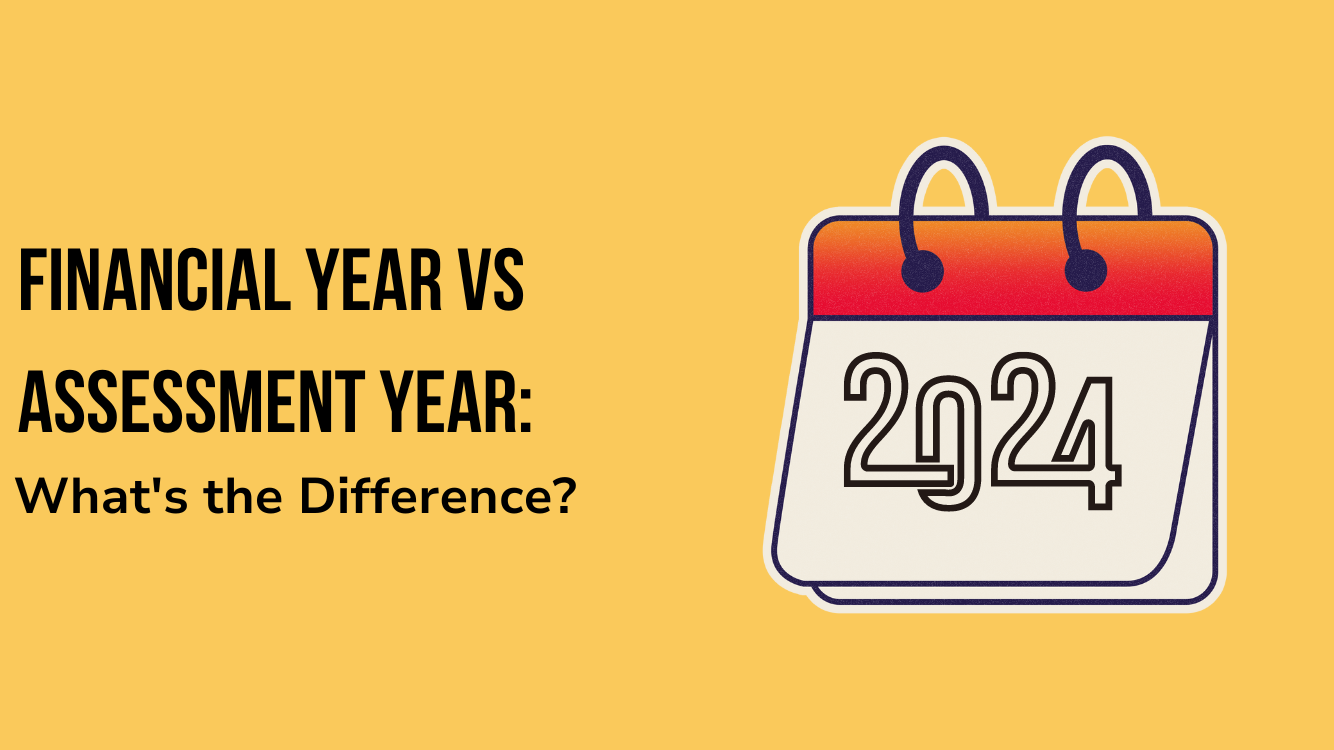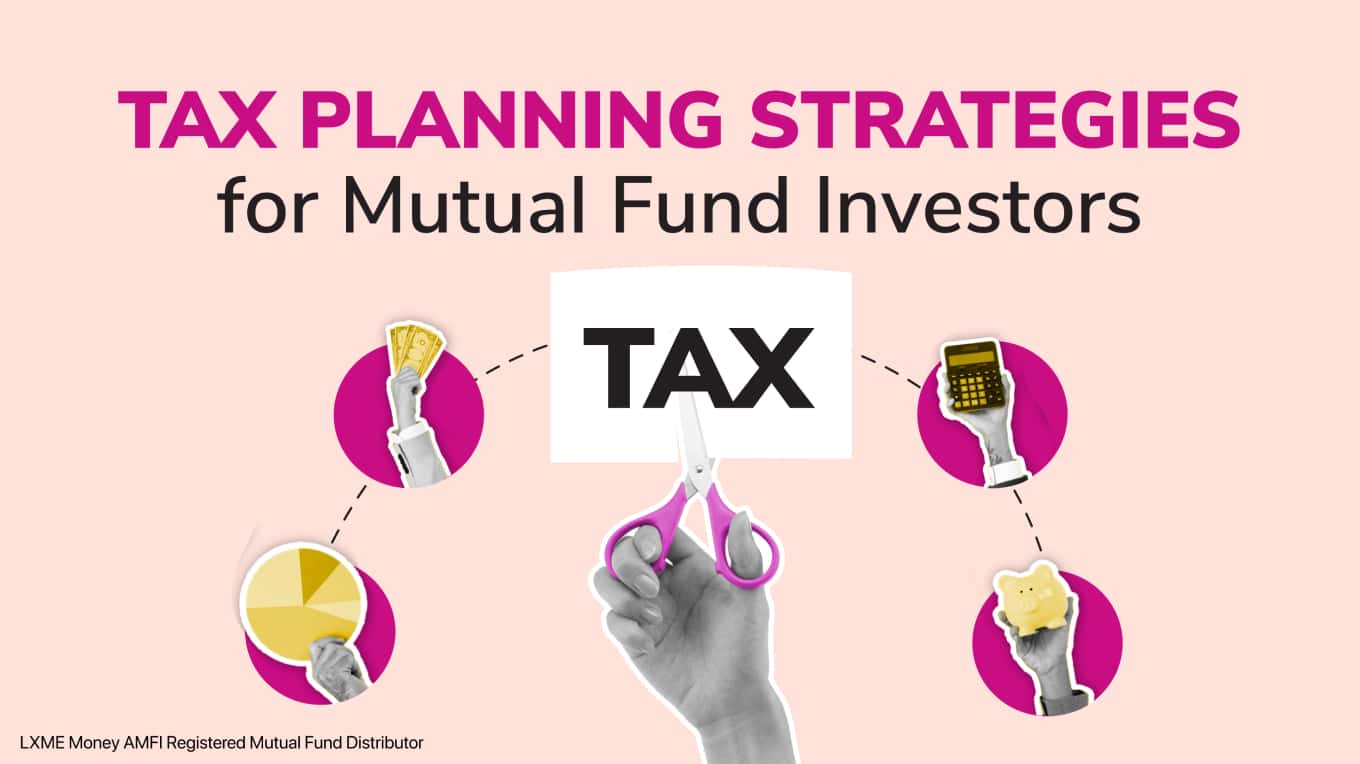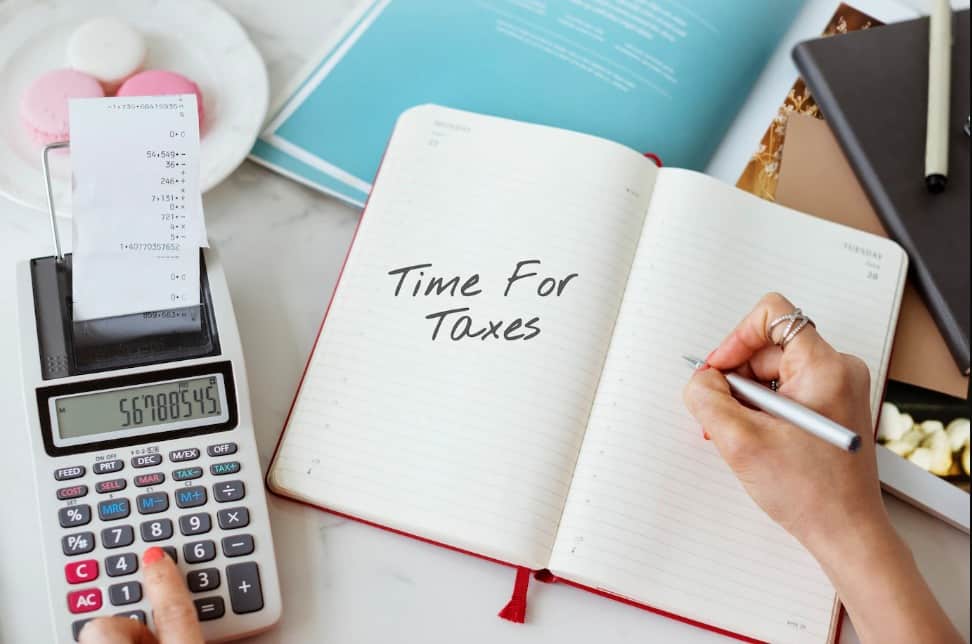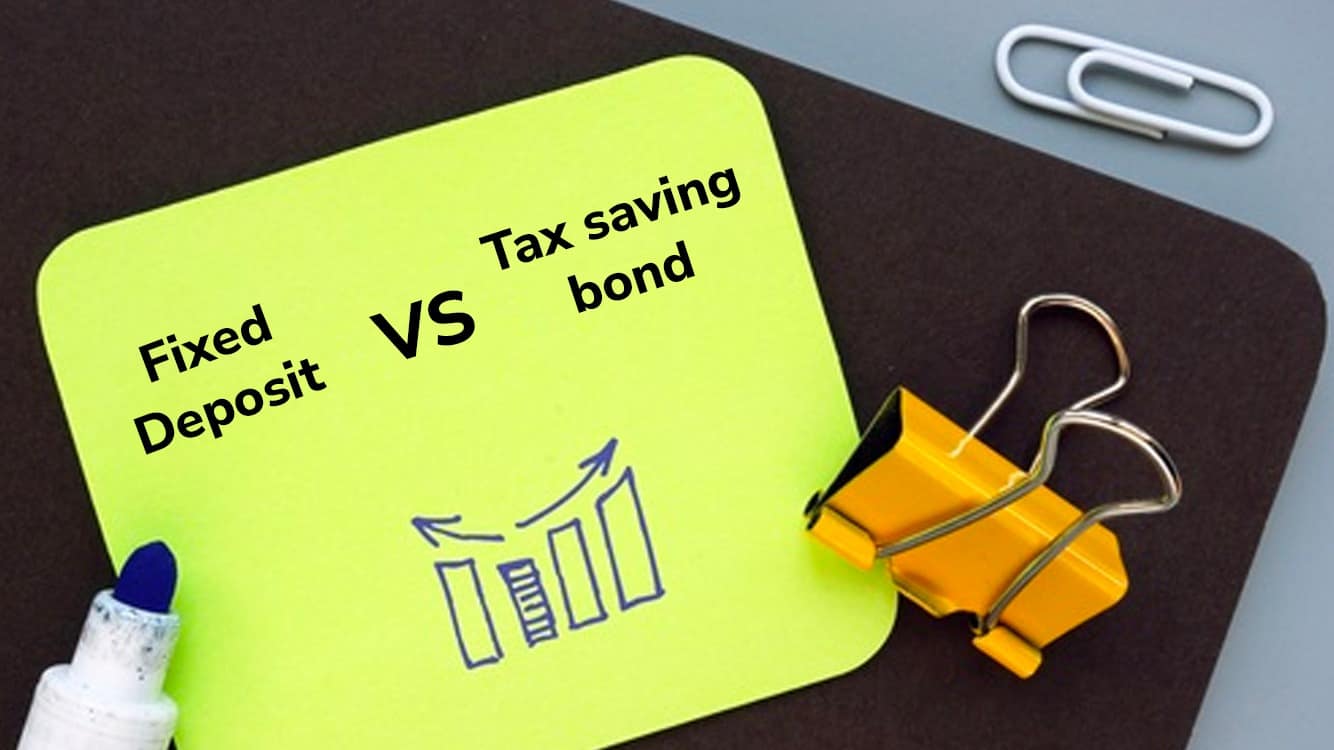Are you torn between investing in tax-saving bonds or a fixed deposit? Making the right financial decision starts here. In this comprehensive guide, we unravel the age-old debate of bonds vs. fixed deposits. We’ll help you understand the key differences, risk factors, potential returns, and which option aligns best with your financial objectives. Let’s dive into this comparison and empower you to make a confident investment choice.
In India, Fixed Deposit is one of the go-to investment instruments for us as it is one of the safe investment instruments and offers fix interest rates.
But, does it offer you any tax benefits?
If you are getting the same returns and safety as FD along with tax benefits then would you choose FD? So, which investment instrument we are talking about here? Yess!! We are talking about Tax Saving Bonds.
What are Tax Saving Bonds?
– The Government offers few tax benefits on bonds offered by government undertakings in order to encourage more investors to participate in these bonds and help finance the infrastructure needs of India.
– They come with a lock in period of 5 to 7 years with a fixed interest rate.
– They are one of the investment instruments that are low risk and provide similar returns as FD.
– One can save taxes by investing in these bonds under Sec 80CCF upto ₹20000 and are excluding the ₹1.5 Lakh deduction offered under 80C.
– These bonds are in a form of paper that bear the name of owner and the issuer of bonds.
– They provide a rate of interest between 6%-8% depending on the issue price at the time they are issued.
– They are one of the good options for people looking for safe, tax efficient investment instrument and have mid to long term investment horizon.

What are Fixed Deposits?
-Fixed deposits are financial instruments provided by banks, non-bank financial institutions, and post offices which is a guaranteed return investment option for fixed maturity time.
– In India, FD is a popular investment option because it offers a higher rate of interest than a regular savings account.
– As per the Income Tax Act, 1961, the interest earned on fixed deposits is added to the ‘Income From Other Sources’ and is fully taxable.
– The interest you earn on a fixed deposit is taxable as per your income tax slab. So if the interest rate of the FD is 5%, the post-tax rate would be 3.5% if you fall in the 30%.
– If your interest income exceeds Rs 40,000 (Rs 50,000 in the case of senior citizens) then banks need to cut 10% TDS on your interest.
So, after learning both instruments let’s learn how you can get tax benefits through an example:
If Mrs. Sharma aged 35 years earns ₹12 lakh annually. She also invests in other tax saving instruments such as PPF, ELSS and NPS so her limit of Section 80C of ₹1.5 lakh is exhausted. She wanted further tax benefits so, she opted to invest in tax saving bonds which offered tax benefit under sec 80CCF up to ₹20,000, she invested ₹40,000 at 7%.
So, let’s have look what is the tax liability of Mrs. Sharma if she invested in Tax Saving Bonds and also have a look what if she was investing ₹40,000 in FD at 7% instead of tax saving bonds.
| Particulars | Invested in Tax Saving Bonds | Just invested in Sec 80C investment instruments and FD |
| Income | ₹12,02,800 (Income+Tax Saving Bond Interest) | ₹12,02,800 (Income+FD Interest) |
| Less: Sec 80C Deduction | ₹1,50,000 | ₹1,50,000 |
| Less: Sec 80CCF Deduction (Tax Saving Bonds) | ₹20,000 | – |
| Total Income | ₹10,32,800 | ₹10,52,800 |
| Tax liability (Calculated as per old regime slab rates) | ₹1,22,340 | ₹1,28,340 |
As you can see in the above table, you can save ₹6000 on your tax by just investing Tax Saving Bond. If Mrs. Sharma had invested in FD then she would have to pay tax on interest earned as well as she won’t get any taxation benefit.
While if she invests in Tax Saving Bond, she will have to pay tax on interest earned and at the same time she can get taxation benefit under Sec 80CCF.
So, choose the investment instrument according to your need and goals. If your goal is to save tax and you can serve the 5 years lock in period then you can opt for these bonds as they offer same interest as well as safety as Fixed Deposit.
Related Article You May Like:- Sovereign Gold Bond 2023: Golden Investment Opportunity
FAQs – Common Questions on Bonds vs Fixed Deposit
1. Which is better, a bond or a fixed deposit?
It depends on your financial goals and risk tolerance. Bonds offer periodic interest payments and can vary in risk, while fixed deposits are more stable but may offer lower returns. Choose based on your needs.
2. Are RBI bonds better than FD?
RBI bonds may offer security and tax benefits, but their returns can be lower compared to fixed deposits. Consider your risk appetite and financial goals when deciding between the two.
3. Are bonds tax-free in India?
Not all bonds are tax-free in India. Some government bonds, like Sovereign Gold Bonds, offer tax exemptions on capital gains. However, the interest income from most bonds is taxable. It’s essential to understand the tax implications of specific bonds.
Opening your LXME account is easier than taking the perfect selfie! Watch this video and try it now! ⬇⬇
To stay connected with LXME and access inspiring content, follow us on Instagram and subscribe to our YouTube channel.
If you found this helpful, share this blog with your friends and family!!
Download the LXME app now to start investing!
New Investor? Request a Callback.
Fill in your details and we will guide you at every step
other blogs

Career Tax May 28, 2024
Financial Year vs Assessment Year: What’s the Difference?
A common confusion among women is the difference between Financial year vs Assessment year. While it may be easy to get confused between the two, there are some very important differences between the terms. As a woman, it is imperative to understand the difference between Assessment year vs Financial year so that no errors are … Financial Year vs Assessment Year: What’s the Difference?

Mutual Funds Tax February 19, 2024
Tax Planning Strategies for Mutual Fund Investors
Investing in Mutual Funds can be very exciting. In the process of investing for your goals and watching your money grow, it is common for women to forget about a crucial aspect of investing i.e., Tax Planning. This blog will provide some insight on taxation on mutual funds and how to save tax on mutual … Tax Planning Strategies for Mutual Fund Investors

Career Tax January 19, 2024
ELSS vs PPF: Choosing the Best Investment for Tax Savings
When it comes to tax-saving investments, understanding the choices is key. In this comprehensive guide, we delve into the world of “ELSS vs PPF,” helping you make well-informed financial decisions. Equity Linked Savings Schemes (ELSS) and Public Provident Fund (PPF) are both popular options, but which one suits your needs better? Join us as we … ELSS vs PPF: Choosing the Best Investment for Tax Savings









